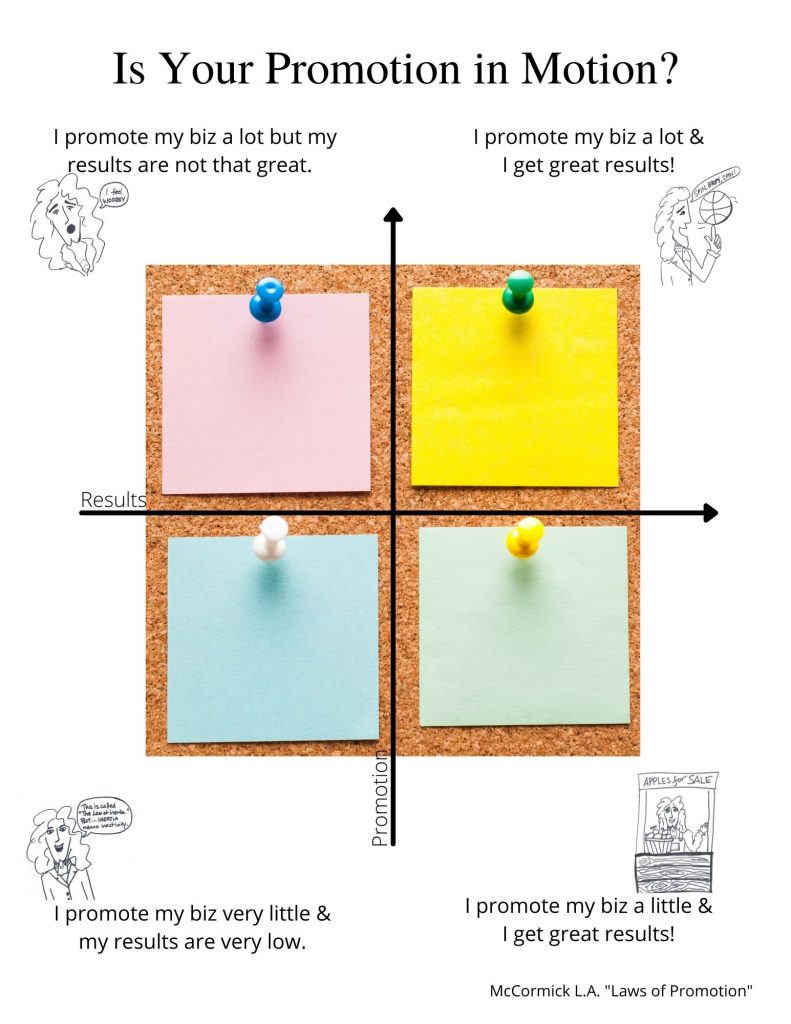
Why You Should Shamelessly Self-Promote as a Consultant
.jpg?width=56&name=francescorizzato8%20(1280px).jpg)
If you don’t promote yourself, don’t expect anyone to do that either! It amazes me how many consultants work their butts off to deliver superior-quality services to their clients yet hesitate to promote themselves.
Here’s the thing, though: you can’t sit there and wait for new clients. Without sales and professional self-promotion, nothing will happen. As a consultant, you are the marketer of your expertise. You ARE ‘the product’.
54% of decision-makers say they spend more than one hour per week reading and reviewing thought-leadership content.
83% of a typical B2B purchasing decision – researching solutions, ranking options, and benchmarking pricing – happens before a buyer engages directly with a provider.
You can’t hide from those numbers. And you can’t hide in the digital world. Your name and expertise need to be out there if you want to grow your business without putting yourself through endless cold calls, soul-sucking follow-ups, and the constant state of anxiety over your pipeline.
Our job as consultants is to ensure we are top of mind - the first specialist that a client calls when they need help. (Will Bachman)
That’s why today I will be covering the subject of self-promotion for consultants. I will discuss the difference between bragging and marketing your expertise, the types of pronouns to use, and what you should avoid at all costs when engaging in self-promotion.
Without further ado, let’s jump into it.
Self-promotion vs. pointless bragging
I have an active blog on my website, I write articles on LinkedIn, I create shorter posts on LinkedIn almost daily, I have an active newsletter with a growing subscriber base, I run webinars, re-purpose the content of my newsletter and webinars and post it on my blog, I promote all my content via social media platforms, I present at events and contribute content to podcasts and blogs of third parties, and do about a dozen other things.
Suffice to say, I 'promote' the hell out of my expertise.
However, here’s the difference that many consultants seem to miss about building their visibility. It’s not the same as pointless bragging. Of course, there is nothing wrong with posting on social media that you are an expert in X, Y, Z and have decades of experience in a certain subject. But this can’t be the extent of it.
Suppose all you do is shout how experienced you are without actually showing the receipts in the form of thought leadership content. In that case, you simply become a part of market noise at best or an annoying presence on LinkedIn that people unfollow at worst.
Non-stop bragging is NOT thought leadership. If you are not teaching your audience, you are not a thought leader or a visible authority.
Many people hesitate to share their work because they're uncomfortable promoting themselves. Sharing your art, writing, or invention isn't an act of self-promotion. It's an act of self-expression. If you don't put your ideas out in the world, no one else can benefit from them. (Adam Grant)
Self-promotion should be selfless
Being a visible authority is about showing, over and over again, the depth of your knowledge and a genuine understanding of your target audience’s pain points and using that to educate your audience.
For example, a case study that simply lists the amazing results you achieved is a start. To take it to the next level, you would explain the pain points you were trying to address, the approach you picked, why that approach delivered the results, and how resolving those pain points helped your client in a grand scheme of things.
Self-promotion is about being generous with your knowledge. It’s about creating thought leadership content that addresses your target audience’s pain points head-on. And doing that regularly, establishing your credibility, expertise, and trust in the market.
You don't lose what you know when you share your knowledge. Unlike physical goods, knowledge is non-rival, meaning its value doesn't decrease when it's shared. (From the book: 'Peak' by Anders Ericsson and Robert Pool)
Furthermore, being visible on the market is about creating a network. Be generous with giving credit to those in your field of work. For example, I read lots of books and listen to a ton of podcasts that inspire personal and professional growth.
I use my channels to promote these resources to my audience. I don’t pretend to develop the ideas I learn through these books, articles, and podcasts. I give credit where credit is due.
Self-promotion should be targeted
If you try to cater to too large an audience, you never carve out a niche for yourself where you can establish deep expertise and provide real value through your promotional activities. All the posts you create will not stick.
If you don’t use your promotional materials to show your voice, point of view, and approach to problems, your audience will not know who you are, and buyers want to feel like they know the vendor they are hiring.
Self-promotion should utilize your network
You and your consulting services do not exist in a vacuum. Engage your ecosystem in your promotional efforts. Create case studies based on the work you complete. Ask your audience what type of issues they face regularly and then address those issues through educational posts. Get feedback from past clients and their testimonials.
As a consultant, you most likely have a dynamic network of colleagues, past and current clients, and partners around you. Engage them.
Self-promotion is an essential skill
Prospects need to know, like, and trust us before they buy professional services. I came across an interesting article about self-promotion as a consultant. The author talks about self-promotion as an essential skill. She explains the know-like-trust with the ability (the ‘know’), the availability (the ‘like’), and the affability (the ‘trust’) of a consultant. Have a look at the article. Here's a quick summary:
- Availability: "It’s not about what you know, but who knows you know it." You may be the most experienced and qualified expert in the world. But if nobody is aware of your qualifications – or rather, if your target audience is not aware of your qualifications – you are not going to have a consulting business.
- Affability: "This is about rapport – being likeable, fitting in, understanding the context." Consultants are in the business of people. Even if you consult on the most complex technology that requires highly specialized technical skills, you still work with people. And understanding how different people interact, work, and communicate is detrimental to your success. To be perceived as a trusted advisor, you need to be able to deliver your message to people from all sorts of walks of life.
- Ability: Now this is about your actual skills and expertise. "This is where most people put their attention. They get stuck improving their Ability, and miss the other two steps." Doing a good job and hoping others notice is not the smartest approach. Sure, sometimes your network does notice when you do a good job. But no sustainable business growth should rely on one-off recognitions.
Identify where you fit in the self-promotion quadrant
I came across this quadrant developed by Leslie Smith, the founder of McCormick LA. You can find more details in his post, Little Promotion and Great Results.
I love this visual representation of assessing where you stand in the self-promotion journey.
- "I promote my biz a lot but my results are not that great": If you fall in this quadrant, you are clearly doing something wrong. Start by assessing your promotional materials and their messaging. Is it all too general? Does it address any real pain points? Is it geared towards your target audience? Do you use the right promotional channels? There is clearly one or more bottlenecks that you must identify and address asap.
- "I promote my biz a lot and get great results": Good going! You are clearly putting in a lot of time into self-promotion and it's paying off. See how you can reduce the amount of resources you put into self-promotion without compromising the outcome - is there a way to make your processes more efficient?
- "I promote my biz very little and my results are very low": Well, no surprise about the results. You are most certainly going to be left behind by your competitors and most likely you are already struggling. Don't wait to start your promotional efforts. Do it today!
- "I promote my biz a little and I get great results": Congratulations! It sounds like you found the most optimal way to promote yourself. Your processes are efficient and you are most likely well known in your market as a leading expert. Keep on doing what you're doing.

Image by Leslie Smith
I/me/my vs we/us/our in promotions
When promoting yourself as a consultant, which pronouns should you use? I, singular OR we, plural? You might be surprised about such a question about the correct use of personal pronouns, but this is a regular discussion with my clients.
The starting point of these discussions? In most cases the uncertainty about the degree and the way to do self-promotion as a consultant or expert/authority.
Here’s my point: if the foundation of your self-promotion (using the first-person singular ‘I/me/my’) is all about genuinely sharing your expertise and teaching your audience, nobody will ever struggle with your (humble) self-promotion.
Nothing can happen to you if you continually keep your audience at the forefront of your mind, and you use your unique personal expertise story to show them what they can learn from what you’ve learned. That’s how I’ve been doing it the past decade, and nobody ever criticized it.
SUBSCRIBE TO 'THE AUTHORITY' NEWSLETTER
Mistakes to avoid
- You are a solo consultant, and you are using ‘We/us/our’ (plural)
In some cases, the solo consultant uses a few freelancers or contractors in the background, but it’s fundamentally a solo activity. In that case, I would never use the plural ‘we/us/our’ because it can hurt a consultant's reputation. Everybody can find out on Linkedin who works with/for you.
One consultant explained that he was doing it to better compete with consultancies he was pitching against. Again, clients will find out sooner or later, and it can destroy the trust in your work. Don’t try to compete with the team capacity of larger consultancies. Instead, compete on deep expertise and an upstream positioning as a solo player.
Right now, I have chosen to be a solo consultant again, and despite having several freelancers working for me in the background, my business is a solo business. I will always use the singular first-person ‘I/me/my’.
In the past, we were working with several long lasting freelance data scientists (they worked for us several years in a row). I had made sure they had this in their LinkedIn profile and they all had a company email address, in case they had to work with clients. Protecting the credibility in the market, right?
- You are owner/member of a consultancy (with a team, big or small), and you are using ‘I/me/my’ (singular) predominately
Being a leader/owner of a consultancy with a team doesn’t automatically mean you are an authority or expert. But suppose you are (ideally, every consultancy has at least one authority or visible expert). In that case, it makes it easier to combine singular (the authority) with plural (the team capacity) in your writing, speaking, etc.
- You are an authority but afraid to self-promote
Recently, a (very) senior solo consultant and client told me he was planning to avoid the singular ‘I/me/me’ in talking about his know-how to avoid coming across as the ‘know-it-all’ guy. So he decided to use the plural ‘we/us/our’ in his content. I fully understand where he came from. He’s a humble person and is not keen to self-promote.
However, apart from the mistake I explained in the first bullet point (using the plural ‘we/us/our’ as a solo consultant), I’ve never experienced authorities coming across as smart-asses when they genuinely share (and teach) their expertise. So, I advised him to switch to the singular ‘I/me/my’ in his future content and writing.
A few final tips
Before I wrap up, here are a few additional tips to help you get out of your head and strategically build your visibility.
- Your ‘About’ on your website and/or social media (e.g. LinkedIn) should always be in the singular first-person ‘I/me/my’. I recommend writing your own ‘About’ in the singular first-person, even within a consultancy team or firm. As I always say, you explain who YOU are, why YOU are doing ‘this consultancy work’, where YOUR expertise and credentials are coming from, how YOU grew into this, what YOUR point of view is, what people can learn from YOU, what impact YOU can have, etc.
- If you are an owner or leader of a consultancy, next to your personal ‘About’, your consultancy should also have an overarching ‘About’. So, there’s the personal ‘About’ (the YOU) and the consultancy ‘About’ (the WE).
- Never use the 3rd person in your writing about yourself. I often see consultants writing in the 3rd person about themselves, e.g., on their Linkedin profile. Why? Fear of using the singular first person because it might come across as bragging about yourself? I don’t like that 3rd person writing at all. It’s weird, cold, and not helping you to connect with your audience.
- If you fear self-promotion and don’t know how to do it exactly, start sharing your experiences and case studies comfortably, doing it step by step. You will get there, as long as you can get into the mindset of sharing your knowledge instead of trying to sell. Generously sharing/teaching instead of selling, that’s the recipe for success in the long run.
In conclusion
To compete, you need to promote yourself, and you need to get visible. That’s the reality of the market and not exactly a new concept. If you want to be in the game, you have to learn how to play it.
Building and growing visibility is a must for consultants. If you do self-promotion right, you never have to worry about selling your consulting services – sending out dozens of emails, proposals, follow-ups, etc. That's what happened to me in the past decade (see my article about this).
Your generous knowledge sharing, your point of view, and your display of genuine understanding of your target audience’s pain points, and your ability to address them will do the selling for you.
Interested in receiving all my learnings to become a better consultant? No spam, no BS. Pure teaching! Subscribe to my newsletter.
.jpg?width=66&name=francescorizzato8%20(1280px).jpg)
Luk’s extensive career in the consulting business, which spans more than 20 years, has seen him undertake a variety of influential positions. He served as the European CHRO for Nielsen Consulting (5,000 consultants in the EU), founded iNostix in 2008—a mid-sized analytics consultancy—and led the charge in tripling revenue post-acquisition of iNostix by Deloitte (in 2016) as a leader within the Deloitte analytics practice. His expertise in consultancy performance improvement is underlined by his former role on Nielsen's acquisition evaluation committee. After fulfilling a three-year earn-out period at Deloitte, Luk harnessed his vast experience in consultancy performance improvement and founded TVA in 2019. His advisory firm is dedicated to guiding consulting firms on their path to becoming high-performing firms, drawing from his deep well of consulting industry expertise and financial acumen.

